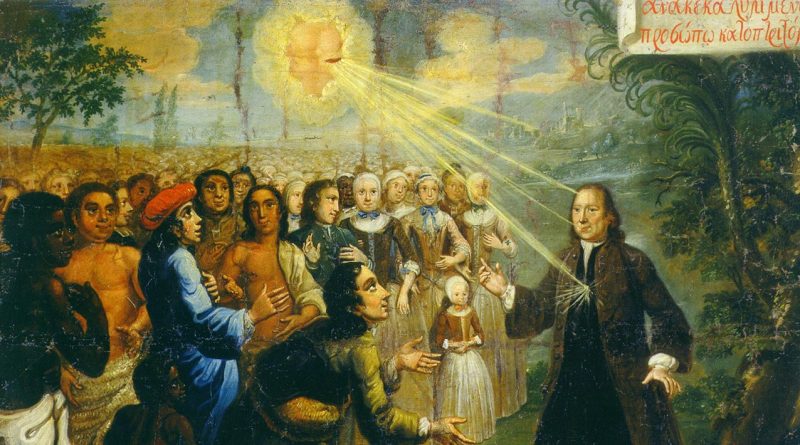Reaching a Theological Position on Human Sexuality Through Heart Theology
Ed. note: For those unfamiliar with Zinzendorf’s “Heart Theology,” it is is a holistic concept that includes the emotional life and relationships with the intellectual concepts.
by the Rev. Dr. Peter M. Gubi, PhD, ThD, DMin
As a British Province, we have been asked by Synod, and by the Faith & Order Committee, to discuss the issues around human sexuality. Indeed, the Faith & Order Committee have produced a series of excellent papers to help us think about these issues as individuals and to discuss them as congregations, in order to inform the British Province of the wider thinking within the Province. What is reported back to Synod from each congregation may influence the position that the British Province takes in future discussions at Unity level, and may enable the British Province to establish a clearer theological position on such matters, when asked for it by others.
But how do we reach a personal theological position about such matters, let alone as a congregation? There are many models of ‘doing’ theology. Since Old Testament times, scholars have been using different methods to interpret, or discern, what God is saying in the meaning of words and in the wisdom of the sacred texts that they have inherited (what is officially called ‘exegesis’). Some people take a position of literalism (taking texts of the Bible in a very literal way). However, theology involves interpretation (what is officially called ‘hermeneutics’).
In the Moravian Church, we have a way of ‘doing’ theology called ‘Heart Theology’. There isn’t one way of arriving at a theological position through Heart Theology, but the following may be helpful in ordering your thoughts in order to arrive at a theological position on human sexuality:
- Situation: In this context, we have been asked to consider what we think and believe about issues of human sexuality. Knowing what we think and believe is our starting point in thinking theologically about these matters, even it is simply knowing that we are confused – or that we have a firm view on these issues already. However, in Heart Theology, the position that we hold is only ever a starting point. We are then required to hold our established positions (bracket them) and enter the process with an open mind, a loving heart, and an authentic desire to know God’s will.
- Personal Process: We are then required to be honest with ourselves. Gaining an awareness of what these issues are triggering within me is then brought to mind. I could ask myself questions like: ‘what is it of my past wounds and experience that I am bringing to this situation? How (and why) is it disturbing me, or causing me to take note? How does my experience match my understanding of God (Christ) in this matter?
- Scripture: Knowing the situation and how it is affecting me, I then turn to the Bible. Look up passages in the Bible that ‘speak’ into the situation from a number of different angles. How do they give insight into, or challenge, my thinking on this situation? Remember that as well as being a discerned expression of the Word of God, scripture is also influenced by the culture and politics of the time in which passages were written – but knowing that doesn’t negate their wisdom for our times. The texts are an expression of discernment, so how does the culture and politics of the time that the passages of the Bible were written, influence the meaning and expression of the texts?
- Tradition: I then give consideration to the wider wisdom that has been received from Christian tradition – even that which may no longer seem to be relevant. What has that said in previous thinking about these things over generations, and why has it become what we have inherited?
- Current research: I then consider the influences on, and knowledge gained from, my own culture, i.e. what science and social science (e.g. psychology, sociology, etc.) research have to say that can inform us in our thinking. Might our culture now be more closely expressing the love and will of God rather than the Church, or does what we have inherited through scripture and tradition more closely express the love of God? Are they at opposite ends in what they are saying, or is there commonality in some things?
- Tacit knowing: Holding these insights from scripture, tradition and current research in mind, I then listen to a deeper place within myself, where I feel that I am most connected with God in me – a place of prayerful listening and connection with Christ. This can be achieved through praying about the situation, and listening through prayer, rather than asking God for something, or for some specific outcome to my thinking (except for the gaining of insight and for His will to be done).
- Decision: Having taken time to allow that process to wash through me prayerfully, I then find myself more in touch with what I believe Christ is saying to me, or wanting of me, whilst holding a tension of both ‘knowing’, and of potentially being wrong – because what I want may be getting in the way. I also need to be open and prepared for the emergence of further revelation. This will hopefully then lead to a theological position being formed which will then affect the way I act and think on the matters of human sexuality – until we are challenged, and go through this process of discernment, again.

The Rev. Dr. Peter M. Gubi, PhD, ThD, DMin, is a supervisor of postgraduate research in Counseling at Chester University in the UK; he serves as pastor of Dukinfield Moravian Church in Manchester. He also maintains a private practice Crewe offering Supervision, Counselling, Pastoral Supervision and Spiritual Direction.




